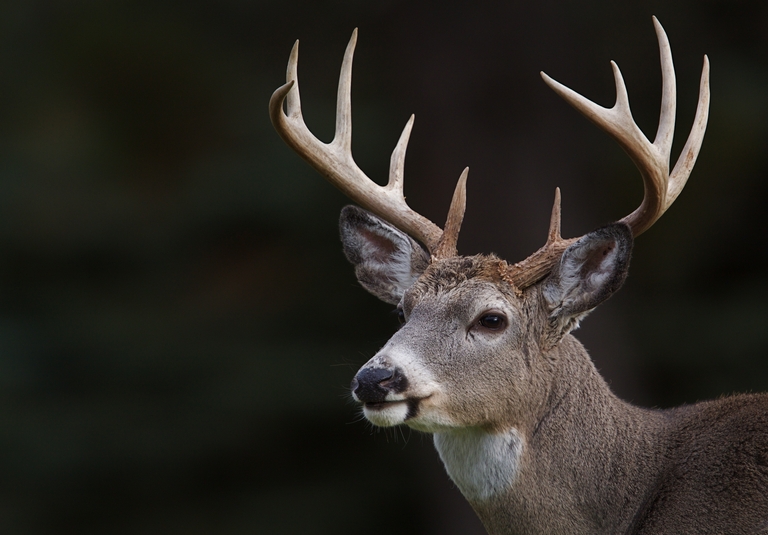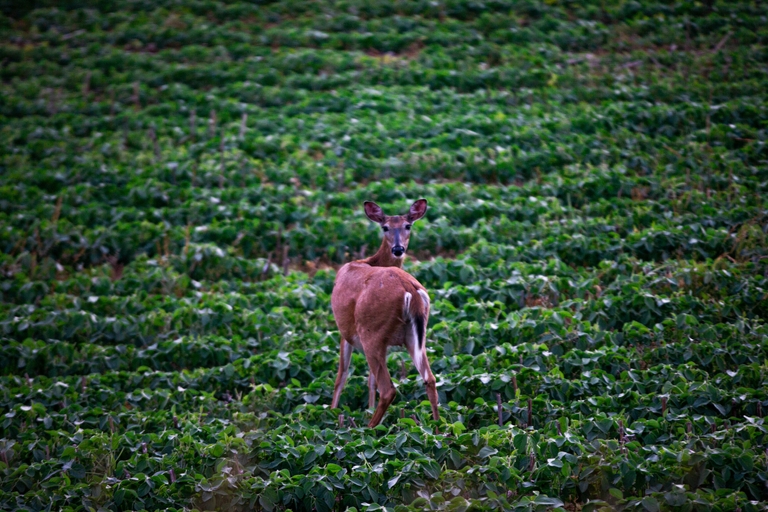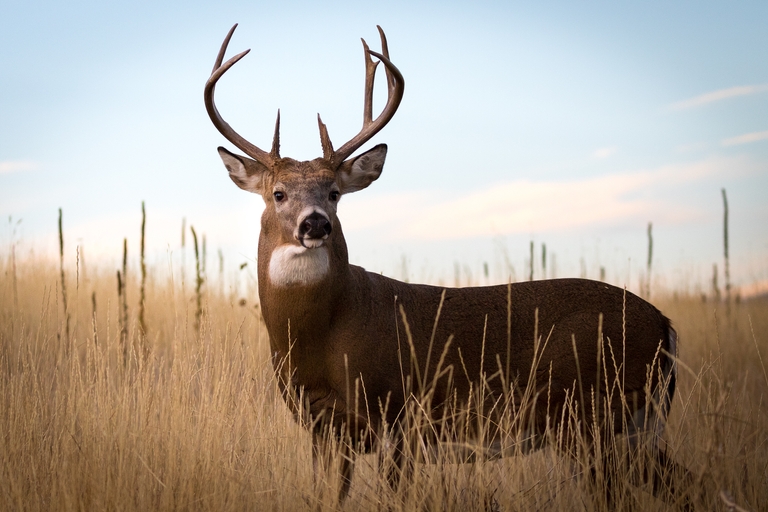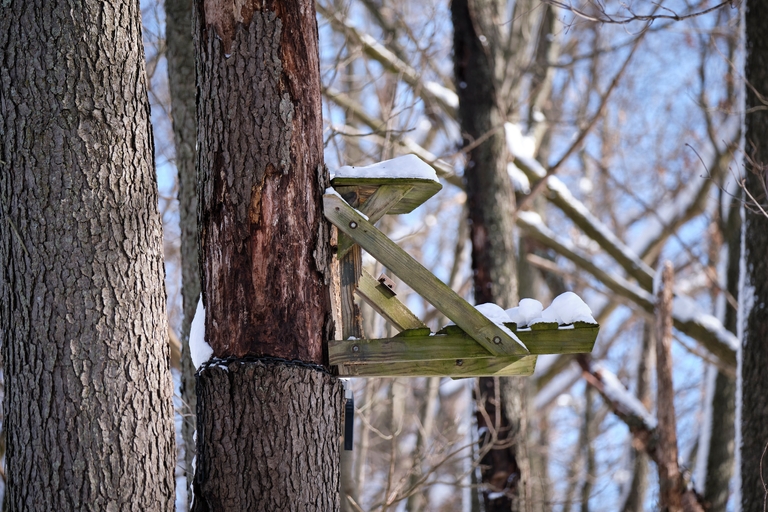What Is a Hunting Lease (and How Do They Work)?

Finding private land to hunt is one of the toughest parts of hunting. Public land can be overcrowded, and family land isn't on the table for a lot of hunters. So, for many of us, securing consistent access to private land makes or breaks our preparations for deer season.
Hunting leases are important to hunters without land of their own — but what is a hunting lease, and how do they work? Let's find out what you should look for if you're considering leasing land for yourself or your crew.

What Is a Hunting Lease?
Simply put, a hunting lease is a legal agreement that lets you hunt on private land. It's a deal arranged between a landowner and a hunter, or a group of hunters, who pay a lease fee in exchange for access and hunting rights.
The lease often spells out precisely what you can and can't do. Some leases only allow deer hunting, while others may include turkey, hogs, or waterfowl. Some are exclusive, meaning only your group can hunt that land, while others are shared.
What Is a Deer Lease?
A deer lease is a specific type of hunting lease focused on deer hunting access. These leases are popular in states like Texas, Georgia, and Illinois, where whitetail populations thrive. Depending on the lease, they might include extras like food plots, tree stands, or even camp areas.
Some deer leases run for a single season, while others might last for several years. The longer leases can be great if you want to manage the land and improve deer genetics.
Personally, I've hunted on deer leases through Rayonier in Georgia and Weyerhaeuser in Mississippi. Both were well-managed timber company properties. While the terrain varied, the rules were always clearly defined, and most importantly, the hunting pressure was low.

How Hunting Leases Work
If you're considering leasing land for hunting, the process usually starts with a conversation between the hunters and the landowner or lease manager. Together, you'll work out the details: price, length of time, animal management, and land use expectations.
Some landowners want minimal traffic. Others allow food plots, feeders, and ATV access. Either way, get everything in writing. You'll also want to know how many other people (if any) will be sharing the property.
Payment can vary. Some landowners charge by the acre, while others charge per hunter or season. The total cost often depends on location, habitat quality, and amenities.
Understanding a Hunting Lease Agreement
A good hunting lease agreement spells everything out beforehand, so there are no surprises once the season starts.
You'll typically see details like:
- Lease duration (seasonal, annual, or multi-year)
- Cost and payment terms
- Allowed game species and hunting methods (rifle, archery, etc.)
- Rules for guests, camping, and vehicle use
- Requirements for liability insurance or waivers
These terms may already exist if you join an existing lease, like a hunting club. Still, it's worth reviewing the agreement and asking questions before you commit.
I'm a member of Gulf Hammock Hunt Club in Florida, which leases 29,000 acres from Hancock Forestry. It's a perfect example of a well-run hunting lease.
The club sets clear expectations on member conduct, harvest limits, guest hunter access, and stand placement. Having access to that kind of organized, large-scale lease gives you the confidence that everyone's following the same rules and that the land's being managed properly.

What Are the Benefits of Leasing Land for Hunting?
Hunting leases benefit both sides of the deal.
For landowners, leases offer an additional source of income and a way to manage who uses their property. Instead of worrying about trespassers or liability, they know who's hunting and when.
For hunters, a lease means fewer people in the woods, less hunting pressure, and a long-term place to scout and hunt. It's especially valuable if you work on land or wildlife improvement projects like planting food plots or creating bedding cover.
Leases also tend to offer a more relaxed experience than public land, where early mornings can turn into a race for parking spots and stand locations.
What Are the Types of Hunting Leases?
Not every hunting lease is the same. Here are a few standard lease types you might come across.
Short-Term Leases
These are usually seasonal leases covering one hunting season or even a week. This arrangement is favored by traveling hunters or those looking for temporary access.
Long-Term Leases
Multi-year agreements allow hunters to develop and manage a piece of land over time. This is ideal for habitat work and consistent success.
Group or Club Leases
Shared leases work well for hunting clubs or friends who want to split costs. These often include shared resources like cleaning stations, stands, or campsites.
Day Leases
Perfect for a quick hunt or a guided trip, these leases give you access to private land for a single day. No long-term commitment is needed.

What to Consider Before Signing a Lease
Before signing on the dotted line, do your research.
Ask some questions, like:
- What is a hunting lease near you priced at?
- Are the terms reasonable for the land's size and game population?
- Are the lease rules compatible with your hunting style?
- How easy is the land to access during wet weather?
- Has the area been overhunted in recent years, or is it well-managed?
Visit the property or request trail cam photos and harvest records. It's always better to be informed — don't assume the land matches the description.

Stay Safe When Leasing Land for Hunting
So, what is a hunting lease? It's a flexible way to secure access to private property and less hunting pressure. Seasonal deer leases and club memberships are the perfect way to keep costs manageable while expanding your opportunities.
Remember: No matter where you hunt or whose land you're on, it's crucial to put safety first. Many landowners may have safety rules included in the lease agreement, so make sure you know the essentials of hunting safely when hunting on someone else's land.
The best way to show you prioritize safety (and protect yourself and others on hunting day is to take a hunter safety course. Hunter-Ed offers state-specific online courses that not only teach you everything you need to know about hunting safely and ethical hunting practices, but our courses also count toward your state's hunter education requirements.
As you consider where you'll hunt this fall (or any time of year), make sure you've also handled your hunter safety certification.
Choose the Hunter-Ed course for your state and start learning!






